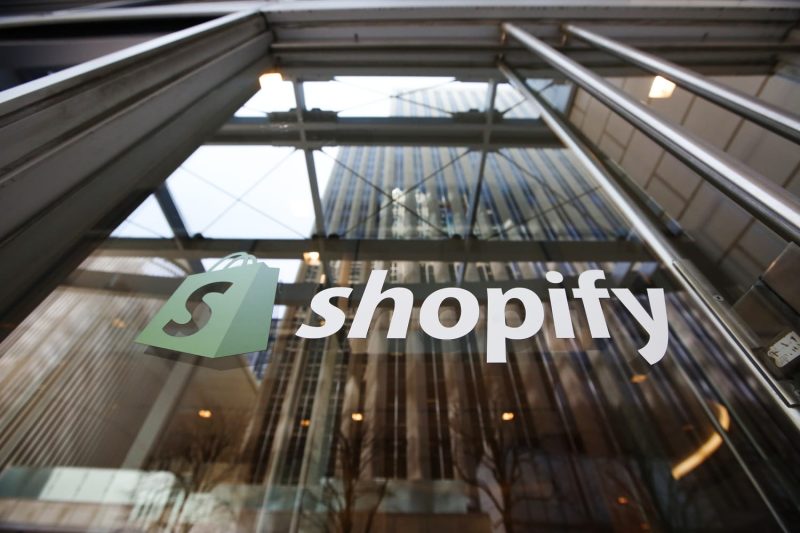London Stock Market: System Crash and Political Speculations

London Stock Market: System Crash and Political Speculations
Investors have just processed the most recent political saga from the US that affected the stock market. Currently, there is a conjecture surrounding the Federal Reserve’s plans to reduce interest rates in case of Donald Trump’s victory in the presidency rally. The consequences of his proposed tariffs were the driving force behind those declines. Meanwhile, the London Stock Exchange has also been influenced by these developments.
Besides, BNY Mellon analysts indicated that the implications of the Trump trade are not fully priced in markets. If there is evidence to support the predictions of a Republican sweep of Congress and a Trump victory, the yield curve may become even more steep.
Additionally, there was growing suspicion that President Joe Biden would ultimately choose to abstain from the next election. Analysts have called the ongoing quarrel a ‘political soap opera.’ So, keep an eye on for updates, as there’s been a lot of buzz about the possibility of the Democrats replacing Biden with another candidate.
SPI Asset Management managing partner Stephen Innes declared that the Democratic Party’s chaos is becoming more and more obvious. However, Biden has been a staunch patriot. Hence, if the rumors are true, this is a sad time for the country.
Nevertheless, the London stock market has also brought some tension to the sentiment. In the major UK stocks, FTSE 100 futures were down 35.0 points at 8,187.50 as of 07:15 BST. Further overnight losses on Wall Street and in many of the major Asian bourses dragged on UK stock futures.
UK Retail Sales Drop and LSEG Revenue Exceeds Estimates
On the domestic side of the UK, the Office for National Statistics reports that in June, UK retail sales decreased by 1.2% per month. The result is way worse than the economists’ initial prediction of a 0.5% decline. This outcome seems to depend on data released overnight by GfK. Notably, the company’s consumer confidence index improved by one point to -13 in July.
After the elections, Britons allegedly adopted a wait-and-see mentality. Concurrently, the net borrowing for the UK public sector last month turned out to be £14.5 billion. The rate went down from £17.8 billion a year earlier. However, on the bright side, it is still higher than the consensus estimate of £12 billion.
The London Stock Exchange Group (LSEG) revealed its revenue for the first half of 2024. In most categories, it exceeded analysts’ projections. For example, sales from Workflows above the market estimate of £953 million to £959 million. Besides, Data & Feeds sales outdid the estimate of £915 million to £942 million.
Outperforming the expected range of £1,995 million to £2,028 million, the Data & Analytics business achieved a total of £2,014 million. In addition to promising forecasts, subscription and asset-based revenues also helped the FTSE Russell division perform strongly. The London market subsidiary posted £443 million compared to a consensus of £220 million to £232 million.
With £590 million, the robust post-trade income went slightly higher than the latest estimate of £577 million to £601 million. The whole revenue, including recoveries, exceeded the average estimate of £4,352 million to £4,417 million to total £4,384 million.
The company’s adjusted EBITDA was £2,011 million, with an EBITDA margin of 47.9%, while its gross profit was £3,803 million. The £1,529 million adjusted operating profit resulted in a £1,440 million margin before taxes and a £1,093 million adjusted profit after taxes.
Microsoft Outage Today Impacting The Market Today
Around 12 PM IST on Friday, a technical problem that affected Microsoft services and caused widespread issues started to occur.
Microsoft provides software support to an enormous amount of businesses worldwide. Hence, the bug in the system has affected a lot of industries, including the London stock market and CrowdStrike Holdings, an American cybersecurity technology.
A Wall Street Journal article claims that Frontier, a low-cost airline, was forced to have some canceled and delayed flights due to the outage. Passengers at Mumbai Airport have also experienced delays and inconveniences due to issues with the check-in systems.
News broadcasters worldwide also have experienced a massive pullback on Friday. A significant outage has affected the London Stock Market news and data network globally. At first, the London Stock Exchange and other services carried on as usual. However, as the issue escalated, the forex exchange publication fell victim to the circumstances as well.
There were major disruptions in the banking sector due to the outage. Blue Screen of Death (BSOD) crashes are plaguing Microsoft Windows users worldwide and causing major disruptions. On the microblogging site X (previously Twitter), users have reported the problem, stating how their laptops and PCs keep restarting themselves.
Following an interruption of the web services, the London Stock Exchange’s Regulatory Corporations also went haywire in the morning of Friday. Overnight, several corporate entities in Asia, such as those in Japan, Hong Kong, and India, reported experiencing software update disruptions.
Despite all the chaos, the market experienced a generally good trading day on Thursday, London Stock Exchange Group PLC (LSEG) saw its shares nudge up by 0.70% to hit £94.70. Therefore, demonstrating a resilient performance.
FTSE 100 Index (UKX) has also seen gains, which increased 0.21% to 8,204.89 points. LSEG finished the session £2.42 short of its 52-week high, which it reached on June 24 at £97.12. The 50-day average of 1.4 million shares was not met by the trading volume of 611,250 shares. Nonetheless, investor optimism about the company’s prospects remained high.
Corporate London Stock Exchange News: Segro & Others
A rise in assets under administration related to the conclusion of the tax year was disclosed by Hargreaves Lansdown. Its assets under administration were valued at £155.3 billion at the end of the fourth quarter, with 24,000 net new clients added during that time and £1.6 billion in net new business. According to Dow Jones Newswires,
Hargreaves also reported a rise in client cash holdings at the beginning of the third quarter.
A portfolio of logistics facilities in Italy was sold by a joint venture that Segro owns half of for €327 million (£275 million), the firm announced on Friday. Four warehouses totaling 338,745 square meters in floor area—two in Milan and two in Rome—make up the portfolio, which brings in €19 million in passing rent annually.
Segro is a 50% shareholder in a joint venture called the Segro European Logistics Partnership (SELP). It was founded in October 2013 and currently holds development land and big-box warehouses valued at €6.7 billion across seven countries in Continental Europe. Its asset, property, and development manager is Segro.
In commodities, precious metal miners experienced a 1.7% decrease in tandem with the price of gold. Utility firms had a 1.3% decrease as well.
In the United Kingdom banking sector, rates rose by 0.1%. Now, the most important figures to observe are the BoE’s August meeting and the imminent election of a new administration. Therefore the investors will anticipate these two components next week.
London Stock Market Today: Retail Sector Fall
June’s retail sales numbers ended up being far lower than the market expected. Sales that do not include fuel decreased by 1.5% from the prior month. Economists had forecast a far more gradual decline of 0.5%.
Fuel was the only industry whose volume sales increased, according to figures from the Office for National Statistics.
The worst-performing retailers were department stores, whose monthly sales decreased by more than 3%. Household goods retailers followed closely, experiencing a monthly decline of more than 2%.
Erin Brookes, European Retail and Consumer Lead at Alvarez & Marsal referred to June as a true washout for retail sales. Traders have yet to sustain two consecutive months of sales growth this year, with another slowdown following an uptick in May.
June’s unfavorable weather resulted in low sales of summer merchandise, including apparel and food. This is the result of substantial deflation and discounting in the fashion retail industry, notwithstanding static volumes.
Looking ahead, sales still have a chance to increase in July due to England’s performance in the Euros and the beginning of the school holiday. Nonetheless, retailers might be worried about a structural volume loss in the face of fiercer competition.
The Future Prospects of the LSEG
Ever since the LSEG IT outage, available market data has been lacking in distinctiveness. However, the financial markets have still been trying to determine a clear projection of the market’s future trajectory.
Recently the London stock market has shown a tendency of outplaying the negative expectations. Therefore, the current forecast is pretty positive with a slight tone of rational cautiousness.
The LSEG EPS for the most recent quarter stood at 1.62 GBX, in contrast to the estimate of 1.68 GBX. However, the forthcoming quarter is expected to have an EPS of 1.73 GBX.
Revenue is anticipated to grow at an average annual rate of 5.4% over the next three years, exceeding the 2.7% growth forecast for the UK’s capital markets industry. Therefore, retailers can take some solace from the latest GfK consumer confidence index. Thereby indicating a rise in large purchase intentions.
The total indicator improved by one point to minus 13, compared to minus 30% for July of the previous year. Out of the five indicators, the major purchase index showed the largest shift, rising seven points to minus 16, suggesting a possible increase in foot traffic.
Although it decreased by one point in comparison to the next 12 months, the opinion on personal finances during the previous 12 months also improved by two points, to minus eight.
Consumer perceptions of the UK’s overall economy have plateaued, with ratings unchanged from the previous month.
The post London Stock Market: System Crash and Political Speculations appeared first on FinanceBrokerage.




